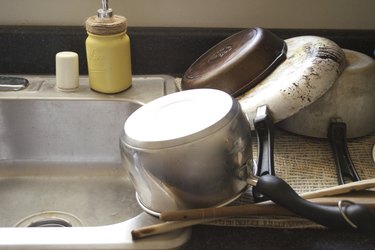
Few people feel inspired in the kitchen when dealing with chipped spoons or dull knives. Well cared for kitchen tools make cooking more pleasant and help ease food preparation. Understanding the care requirements of your favorite tools and utensils prolongs their life so they can serve reliably for years.
Wooden Tools
Video of the Day
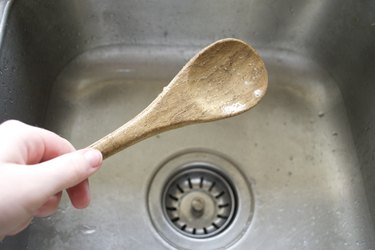
Wooden spoons, cutting boards and bowls require hand-washing, because the dishwasher will eventually degrade the wood, causing cracking or warping. Wash wooden tools with warm soapy water, and then thoroughly rinse and wipe dry. Cutting boards usually require deeper cleaning, so rub them with salt to scour them before washing and drying. Wiping down bowls and cutting boards with mineral oil replaces the oil in the wood so it doesn't crack. Store cutting boards standing on their edge so they don't warp.
Video of the Day
Cookware Maintenance
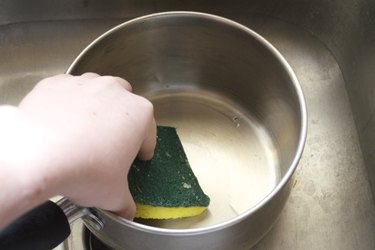
Care of pots and pans depends on the type of material. Clean cast iron with hot water and a nonabrasive sponge, and then wipe dry so it doesn't rust. Soap and harsh abrasives ruin the seasoning on cast iron. Coat the inside of the pan with a thin layer of oil before storing it. Nonstick pans require hand-washing with hot, soapy water and a mildly abrasive cloth sponge. High heat and metal utensils can crack the nonstick coating, so only cook over medium heat and use plastic or wooden utensils. Avoid stacking nonstick pans, which can cause scratches in the coating. Stainless steel and enamel cookware is dishwasher-safe, but avoid harsh abrasives that can scratch the surface.
Knife Care
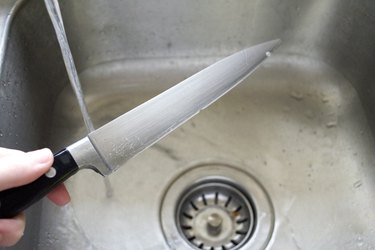
Using a cutting board when chopping prevents knife blades from dulling. Wooden cutting boards are preferable because plastic dulls blades more quickly. Wash knives in hot, soapy water. Avoid placing them loose in the sink because you are more likely to cut yourself fishing for a wet knife, and other dishes in the sink can nick or dull the blades. You can air dry stainless steel knives, but carbon steel can rust so make sure to dry these knives immediately after washing and rinsing. Storing knives in a block or sheath prevents accidents and helps maintain the blade's edge. Sharpen your knives as soon as they become dull. Dull knives don't just cut poorly, but they are more likely to slip and cause injury. You can use a simple knife sharpener through which you draw the blade several times, or you can sharpen manually by hand with a sharpening steel. When using a steel, hold the blade at an angle to the steel rod, and draw it down the length of the rod, sliding the knife so the blade passes over the rod from handle to tip. Repeat the process several times on both sides of the blade to sharpen it evenly.
Plastic Utensils
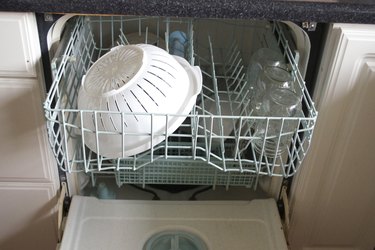
Plastic tools, including spoons, spatulas and microwave ovenware, are usually dishwasher-safe, but always check with the manufacturer first. Plastic will sometimes melt or warp on the lower dishwasher rack, so use the upper rack or hand-wash the plastic in soapy water instead. Avoid harsh abrasives, which can scratch plastic surfaces. Instead, use a nylon mesh scrubber to remove stubborn food. Store plastic ware flat to avoid warping. Some foods, especially those with acidic juice such as tomato sauce and fruit juices, can stain plastic utensils and cookware.